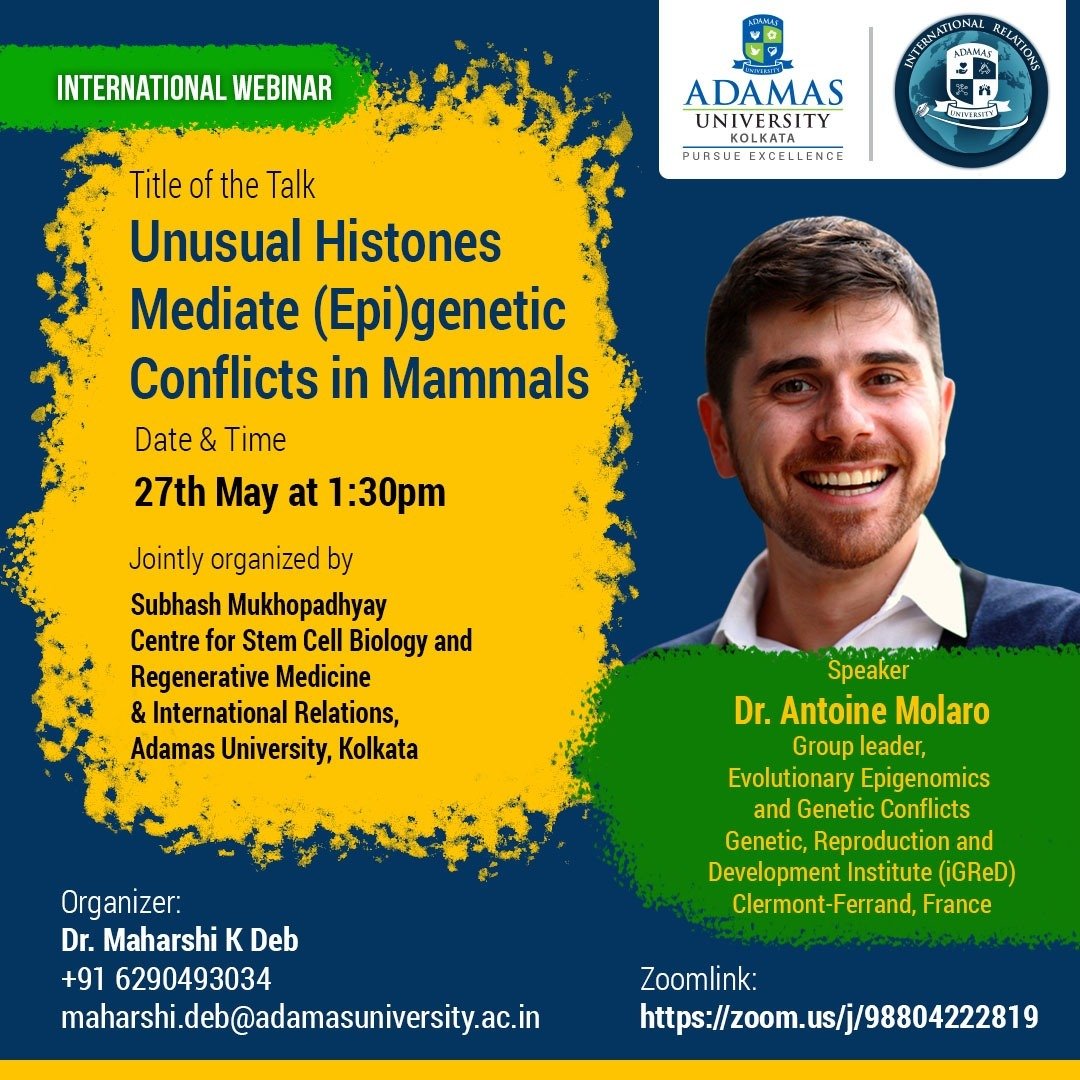Events
International Webinar on Unusual Histones Mediate (Epi)genetic Conflicts in Mammals
Official Website →
Event Details
Dr. Molaro is broadly interested in understanding the function of the germline epigenome. In mammals, the germline epigenome is key to the inheritance of genetic and epigenetic information. It is also at the heart of intense evolutionary battles, known as genetic conflicts. These can arise between genetic elements within our genomes, whole chromosomes or between parents. In fact, these constant tugs of war shape fundamental aspect of reproduction and speciation and drive rapid evolutionary innovation. Thus, contrary to current paradigms that focus on evolutionary conservation, Dr. Molaro studies the rapid evolution of the epigenome to discover novel principles in reproduction and speciation. His research program interfaces epigenomics with evolutionary biology.
As a graduate student, Dr. Molaro had uncovered some of the rules behind the co-evolution of the germline genome and epigenome in primates (Molaro, Hodges et al., 2011). He also identified the consequences of small RNA’s adaptive evolution on the establishment of the germ cell epigenome in mice (Molaro et al., 2014). During his postdoc, he has discovered adaptive evolution in germline DNA methyltransferases and in short H2A histone variants in mammals (Molaro et al., 2018 and 2019). Using mouse models, he uncovered that some short H2As have parental-effect functions that are crucial for embryogenesis (Molaro et al., 2020). In collaboration with cancer biologists he has discovered that short H2As are ectopically expressed in many human cancer (Chew et al., 2021).
